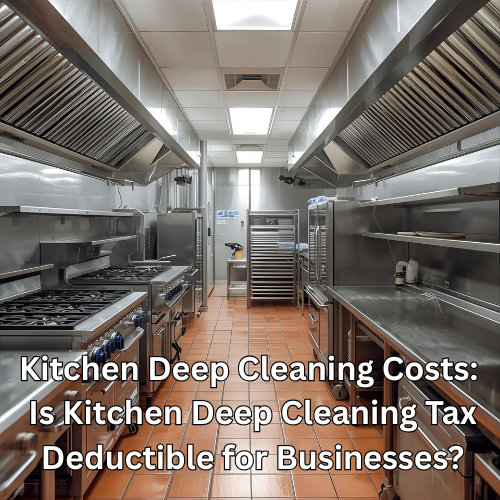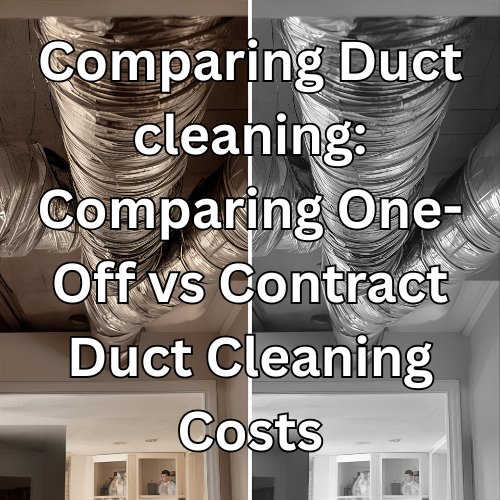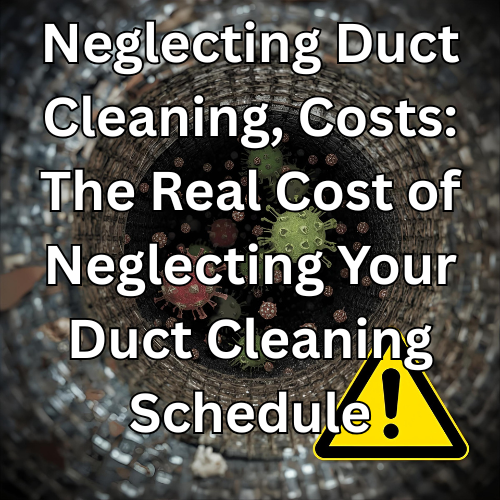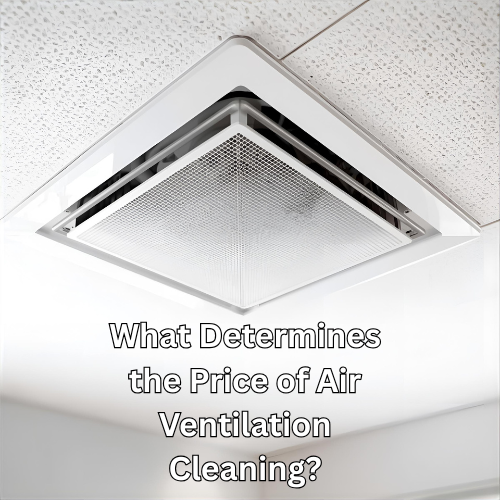If you run a restaurant, café, pub, or commercial kitchen, you already know that kitchen deep cleaning costs can add up.
So it’s natural to ask:
“Can I claim kitchen deep cleaning as a business expense — or even make it tax-deductible?”
It’s a smart question, and one we hear from UK business owners every week.
The short answer is yes — in most cases, kitchen deep cleaning is a tax-deductible expense.
But (and this is important) there are a few rules you’ll want to understand first.
Let’s break them down, so you know exactly where you stand — and how to make sure you’re claiming correctly.

What HMRC Says About Cleaning Costs
HMRC’s rule for any deductible expense is simple:
It must be “wholly and exclusively” for the purposes of your trade or business.
That means if your cleaning is essential to running your business — such as maintaining food hygiene standards, passing EHO inspections, or keeping extraction systems safe — it qualifies as a legitimate business expense.
So whether you manage a busy hotel kitchen or a small takeaway, your kitchen deep cleaning costs can normally be offset against your taxable profits.
📞 Get a Free Quote for kitchen deep cleaning costs
What Counts as Kitchen Deep Cleaning?
When we talk about “kitchen deep cleaning,” we’re not just talking about wiping down surfaces.
A proper commercial kitchen deep clean includes:
- Degreasing and sanitising all food-contact areas
- Cleaning of ovens, grills, fryers, and appliances
- High-level cleaning (ceilings, walls, lights, vents)
- Extract and duct cleaning to NAAD21 standards
- Detailed hygiene reporting for compliance and insurance
Because all of these services help maintain legal hygiene standards under the Food Safety Act, they’re considered necessary for trading — and therefore allowable business costs.
📞 Get a Free Quote for kitchen Deep Cleaning Costs
What Makes Deep Cleaning Different From Routine Cleaning?
Routine cleaning is your daily or weekly wipe-down — the work your staff do to stay on top of spills and grime.
A deep clean is far more intensive: it tackles the build-up you can’t safely reach or remove without specialist equipment.
From HMRC’s point of view, that distinction matters.
Routine cleaning supplies (like cloths or sprays) are deductible as consumables.
But deep cleaning — because it’s usually performed by a professional contractor — falls under business maintenance and can be claimed as a service expense.
That means your invoice for kitchen deep cleaning goes straight into your bookkeeping as an operational cost.
📞 Get a Free Quote for Kitchen Deep Cleaning Costs
Can You Reclaim VAT on Kitchen Deep Cleaning?
If your business is VAT-registered, then yes — you can reclaim VAT on your kitchen deep cleaning costs.
Here’s how it works:
- Your cleaning contractor charges VAT on the invoice.
- You include that VAT in your input tax on your return.
- HMRC refunds it (or offsets it against what you owe).
Just make sure your supplier provides a valid VAT invoice with their registration number clearly shown.
📞 Get a Free Quote for Kitchen deep cleaning costs
What If You Work From a Mixed-Use Premises?
If your kitchen is part of a property that’s partly domestic — for example, a pub where you also live upstairs — then only the business proportion of your cleaning costs is deductible.
You’ll need to make a fair estimate, often based on floor area or usage hours.
Your accountant can help allocate that correctly to keep HMRC happy.
Why Accurate Record-Keeping Matters
To claim correctly, keep these on file:
- Detailed cleaning invoices
- Reports or certificates (especially NAAD21 for extract systems)
- Any correspondence with your insurer or fire authority
These not only support your tax deduction but also serve as proof of compliance during inspections or audits.
📞 Get a Free Quote for kitchen Deep cleaning costs
Why Businesses Budget for Deep Cleaning
Aside from tax savings, scheduling regular professional deep cleans offers several bottom-line benefits:
✅ Longer Equipment Life – Grease-free components run cooler and last longer.
✅ Reduced Fire Risk – Certified cleaning meets insurer requirements.
✅ Better Staff Morale – A spotless kitchen boosts pride and performance.
✅ Improved Energy Efficiency – Clean ducts and fans use less power.
✅ Audit Readiness – Documentation ready for EHO, insurers, and landlords.
When you add those benefits to the fact that kitchen deep cleaning costs are tax-deductible, it’s clear this isn’t just hygiene — it’s smart financial management.
📞 Get a Free Quote for kitchen deep cleaning costs
A Real-World Example
A Leeds-based restaurant owner recently told us she used to view deep cleaning as “just another expense.”
Her accountant explained she could fully deduct the £1,100 cost each year — plus reclaim VAT.
She’s now on a regular maintenance plan, saving money on repairs and avoiding costly EHO re-inspections.
That’s how turning compliance into strategy really pays off.
Final Thoughts — Cleaning Isn’t Just Compliance, It’s Cost Control
When you understand the rules, kitchen deep cleaning costs become less of a burden and more of a business advantage.
They’re tax-deductible, VAT-recoverable, and they protect your kitchen’s reputation and safety record.
So next time you plan your budget, treat deep cleaning like your gas, electricity, or insurance — a vital, claimable running cost that keeps everything working smoothly.
If you’re ready to find out exactly what your next deep clean will cost — and how to claim it properly — we’ll give you a clear, itemised quote.
📞 Get a Free Quote for kitchen deep cleaning costs
and get a free compliance checklist to make sure every expense is working for you.
💡 Summary: Key Takeaways
- Kitchen deep cleaning costs are tax-deductible if used solely for business.
- VAT can be reclaimed if you’re VAT-registered.
- Keep invoices, reports, and certificates for proof.
- Regular cleaning saves money and reduces risk.
- Deep cleaning isn’t just about hygiene — it’s about smarter business spending.





